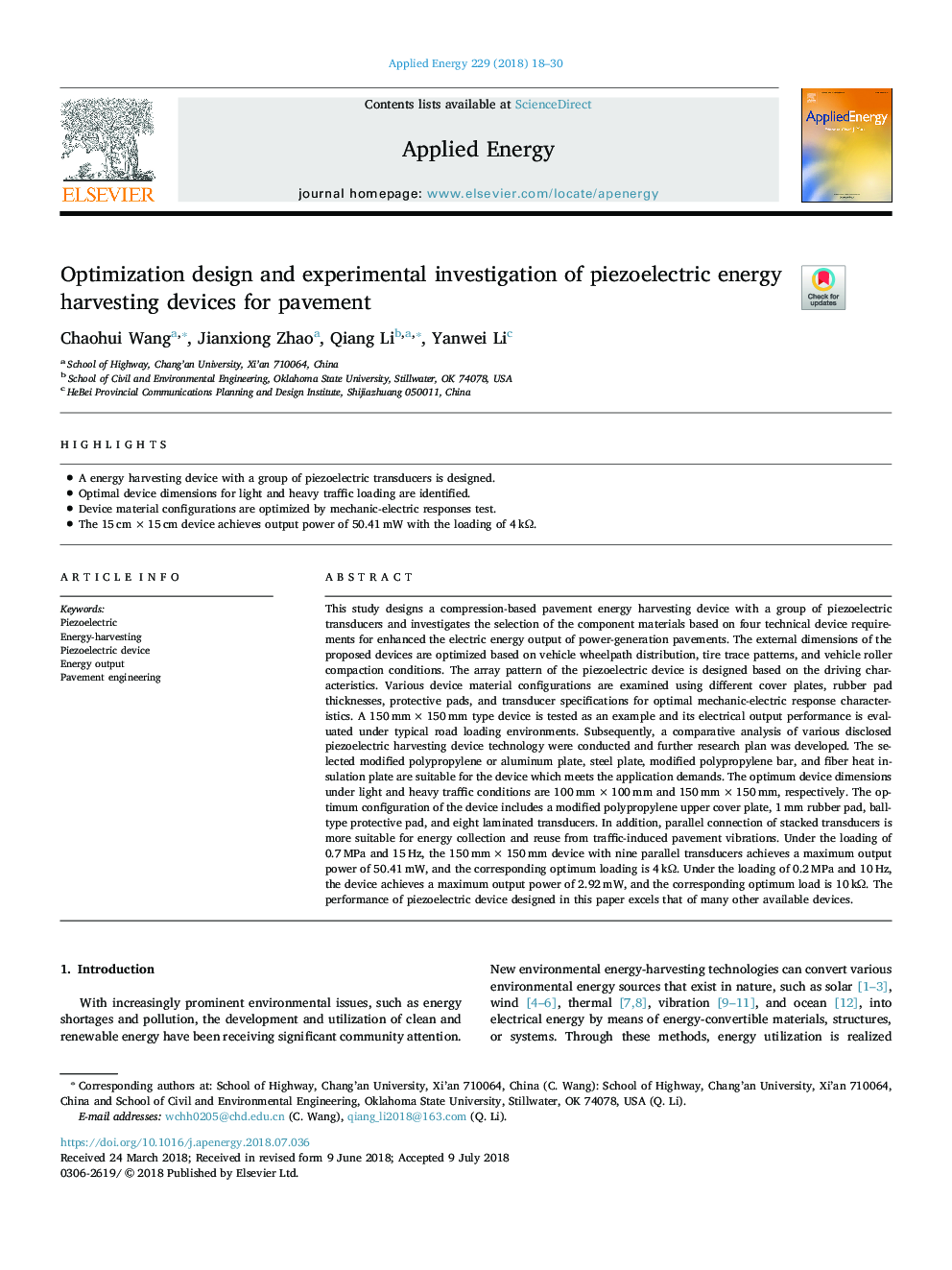| Article ID | Journal | Published Year | Pages | File Type |
|---|---|---|---|---|
| 6679633 | Applied Energy | 2018 | 13 Pages |
Abstract
This study designs a compression-based pavement energy harvesting device with a group of piezoelectric transducers and investigates the selection of the component materials based on four technical device requirements for enhanced the electric energy output of power-generation pavements. The external dimensions of the proposed devices are optimized based on vehicle wheelpath distribution, tire trace patterns, and vehicle roller compaction conditions. The array pattern of the piezoelectric device is designed based on the driving characteristics. Various device material configurations are examined using different cover plates, rubber pad thicknesses, protective pads, and transducer specifications for optimal mechanic-electric response characteristics. A 150â¯mmâ¯Ãâ¯150â¯mm type device is tested as an example and its electrical output performance is evaluated under typical road loading environments. Subsequently, a comparative analysis of various disclosed piezoelectric harvesting device technology were conducted and further research plan was developed. The selected modified polypropylene or aluminum plate, steel plate, modified polypropylene bar, and fiber heat insulation plate are suitable for the device which meets the application demands. The optimum device dimensions under light and heavy traffic conditions are 100â¯mmâ¯Ãâ¯100â¯mm and 150â¯mmâ¯Ãâ¯150â¯mm, respectively. The optimum configuration of the device includes a modified polypropylene upper cover plate, 1â¯mm rubber pad, ball-type protective pad, and eight laminated transducers. In addition, parallel connection of stacked transducers is more suitable for energy collection and reuse from traffic-induced pavement vibrations. Under the loading of 0.7â¯MPa and 15â¯Hz, the 150â¯mmâ¯Ãâ¯150â¯mm device with nine parallel transducers achieves a maximum output power of 50.41â¯mW, and the corresponding optimum loading is 4â¯kΩ. Under the loading of 0.2â¯MPa and 10â¯Hz, the device achieves a maximum output power of 2.92â¯mW, and the corresponding optimum load is 10â¯kΩ. The performance of piezoelectric device designed in this paper excels that of many other available devices.
Related Topics
Physical Sciences and Engineering
Energy
Energy Engineering and Power Technology
Authors
Chaohui Wang, Jianxiong Zhao, Qiang Li, Yanwei Li,
